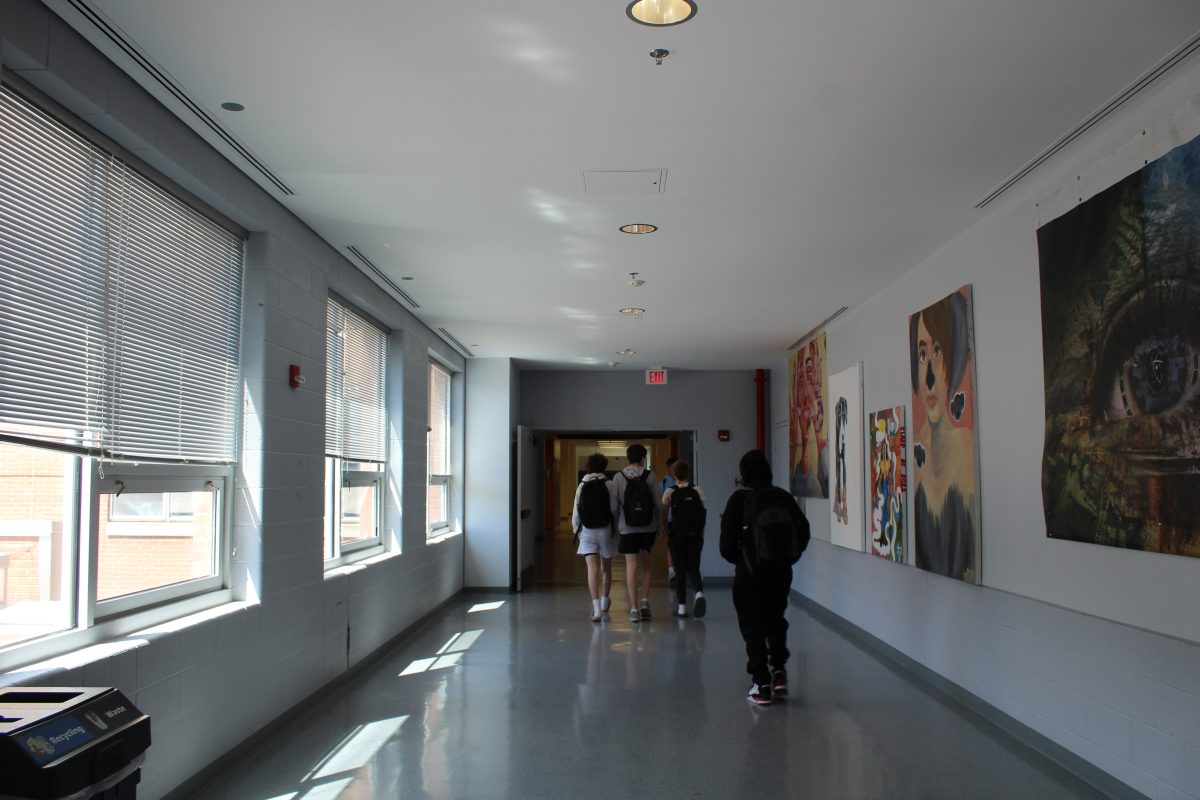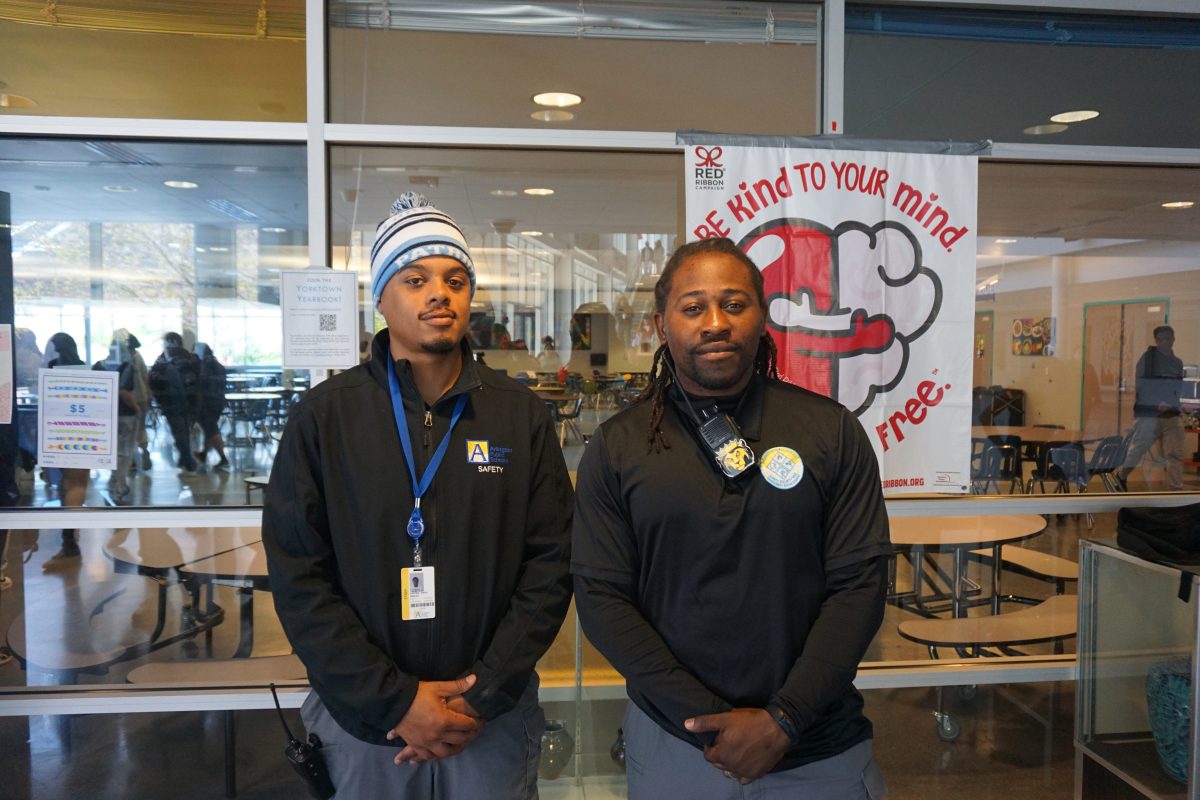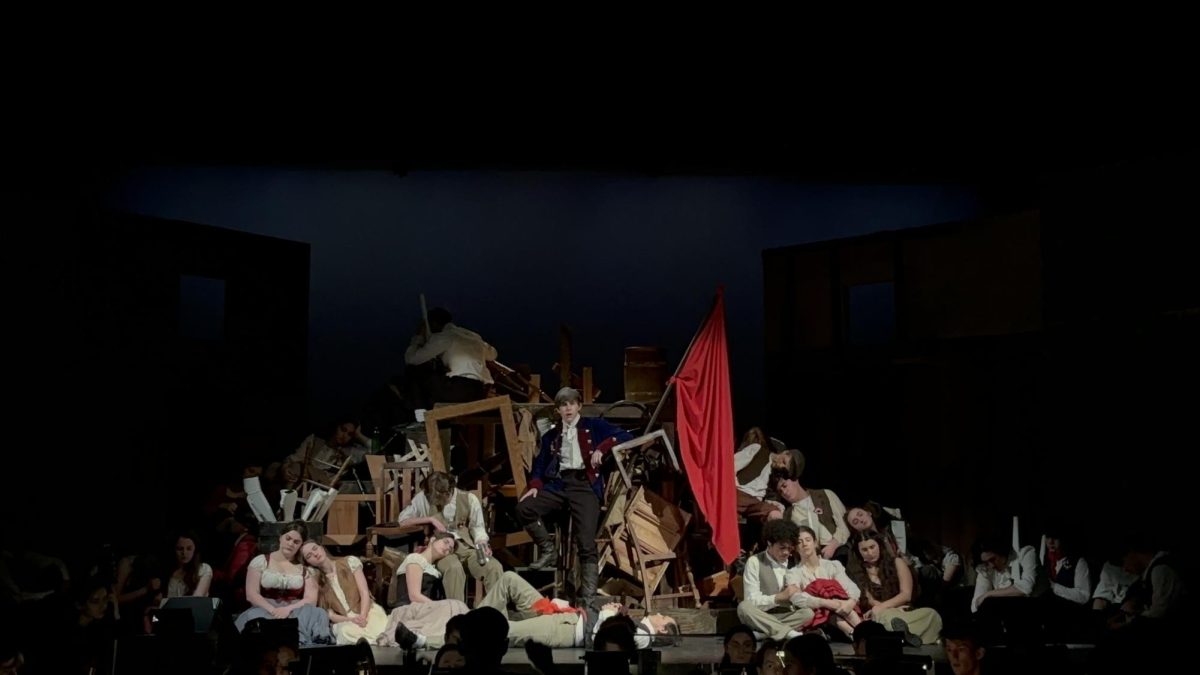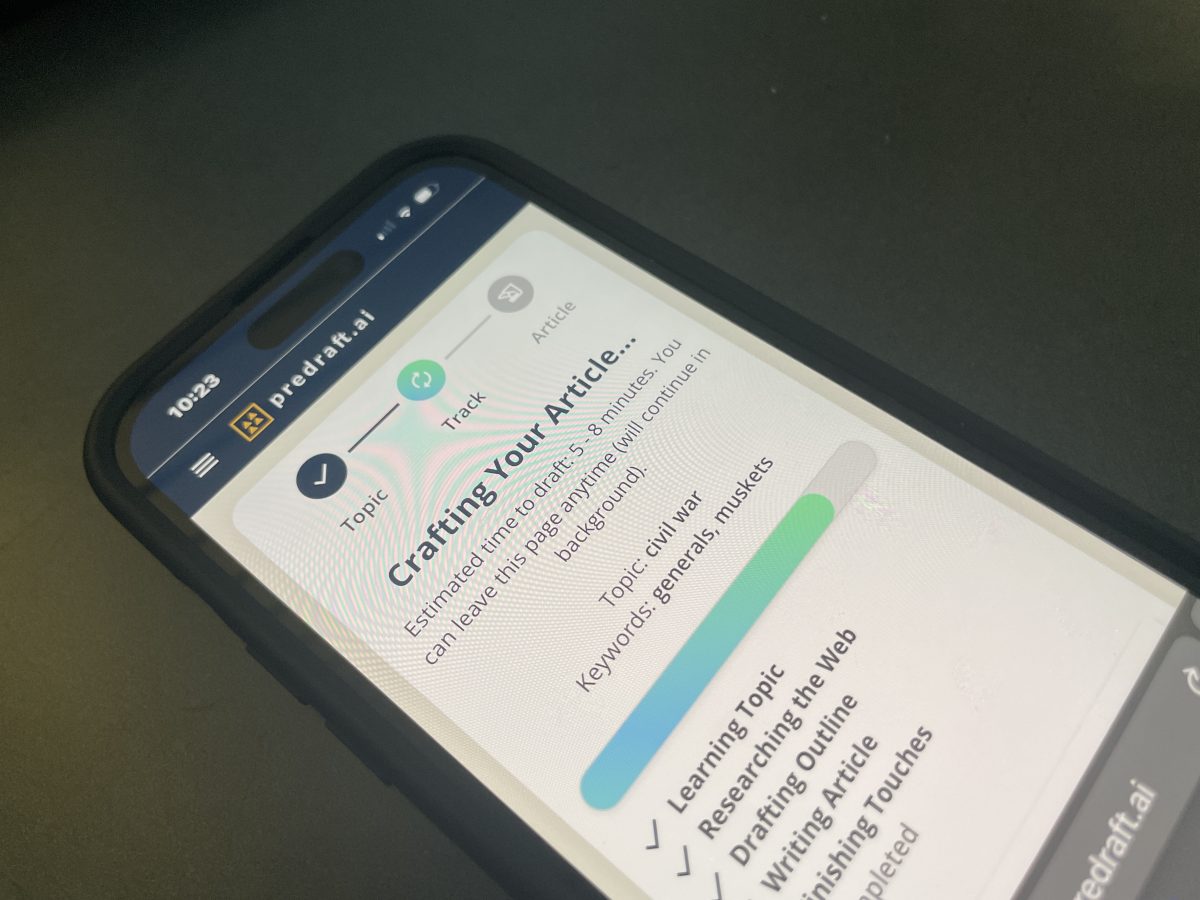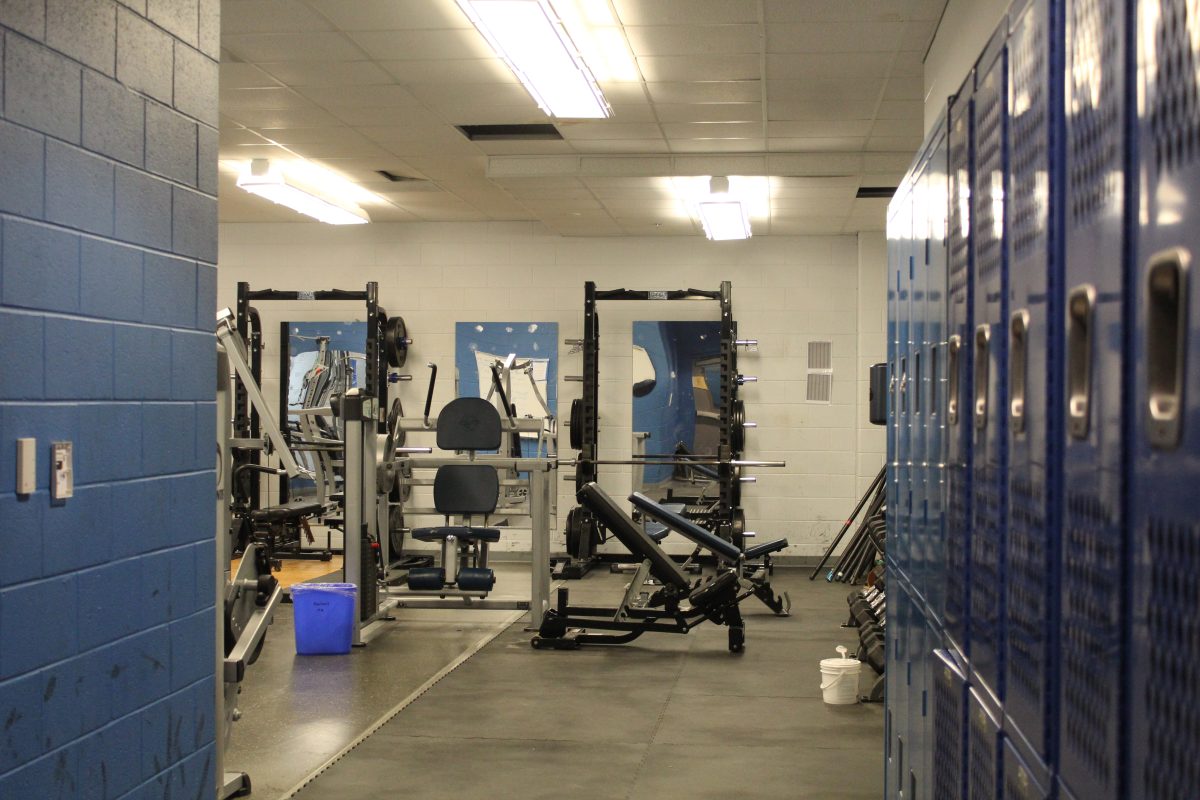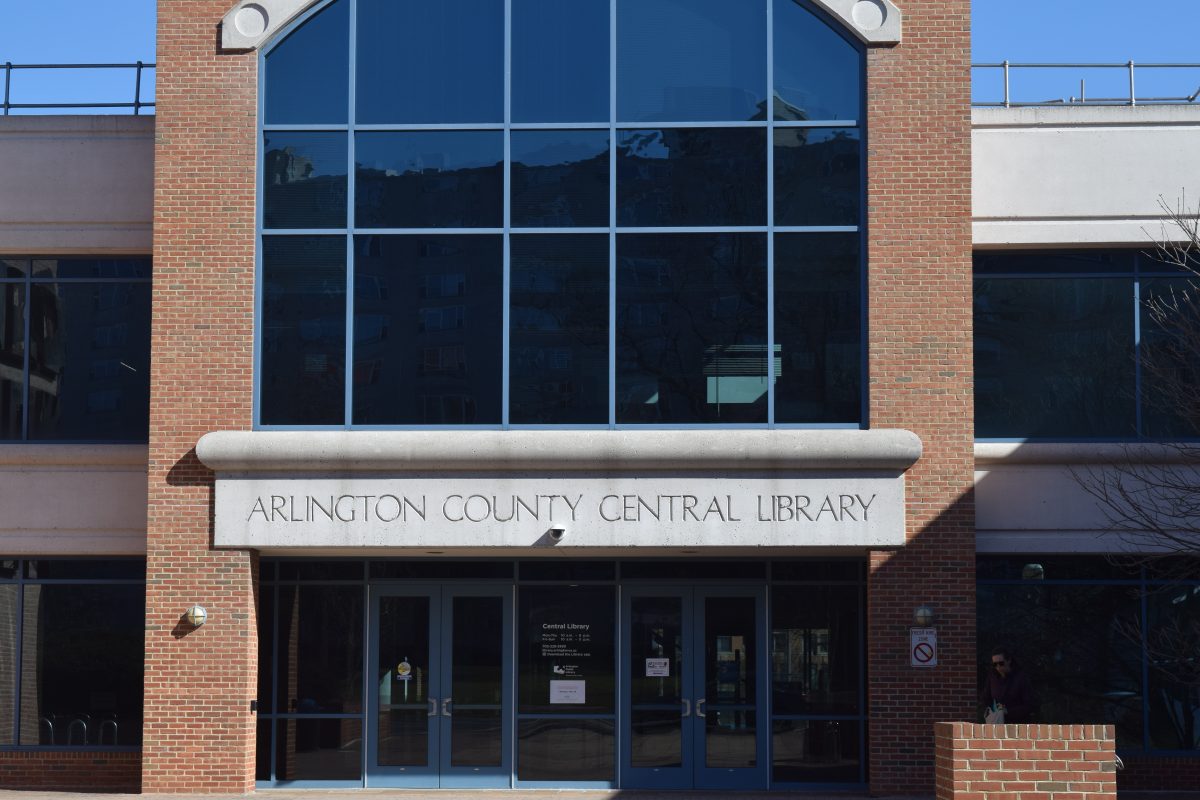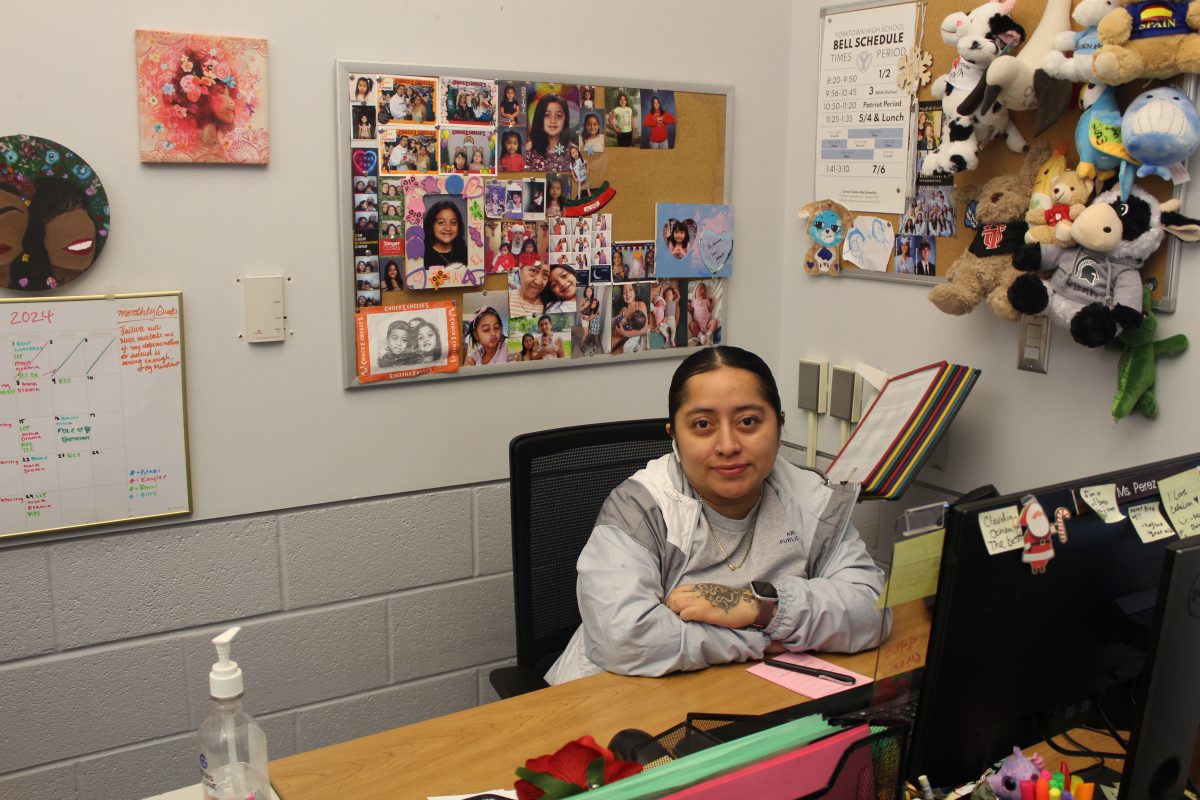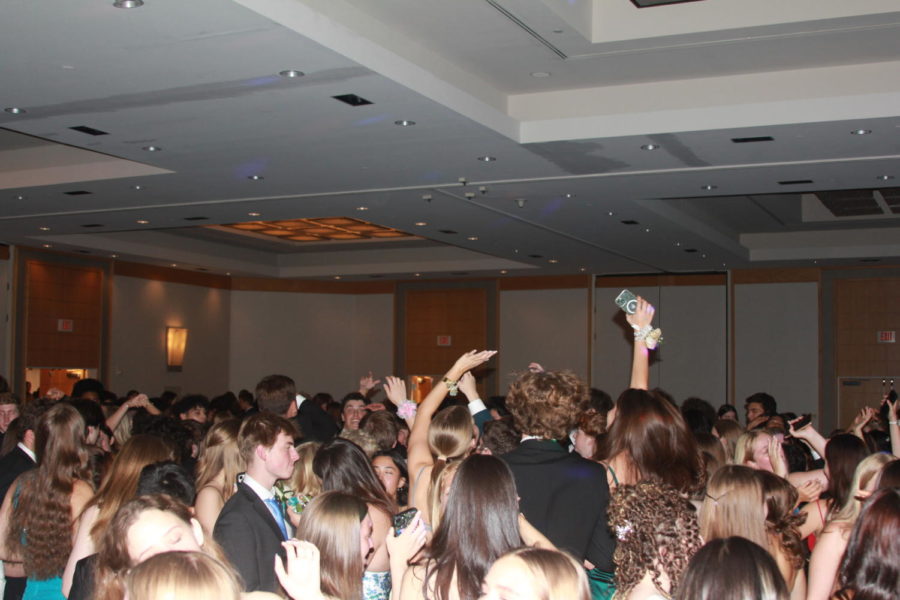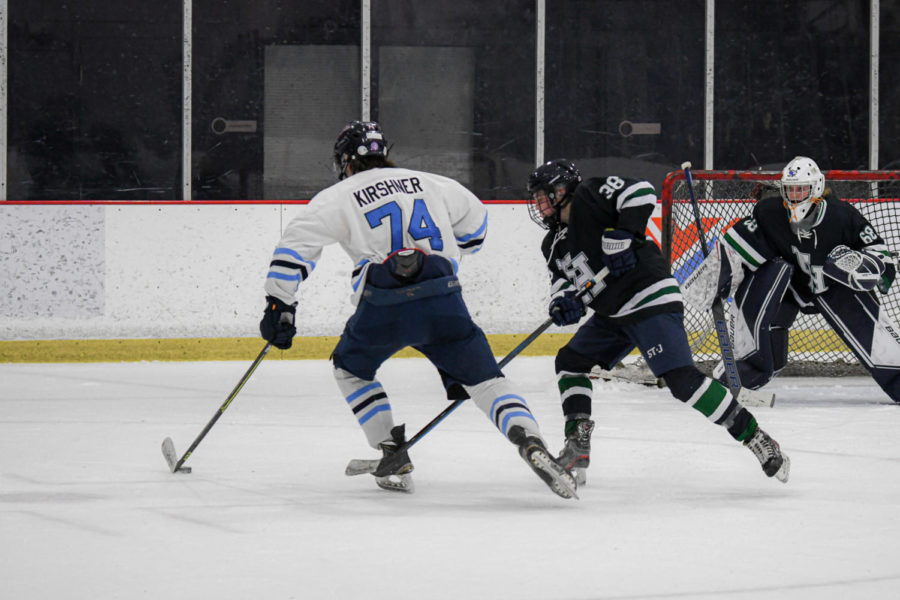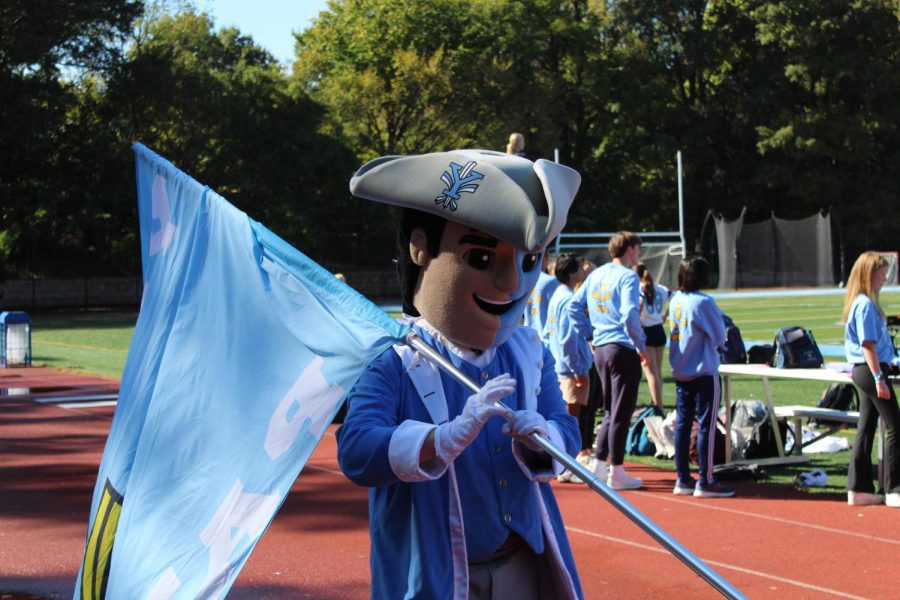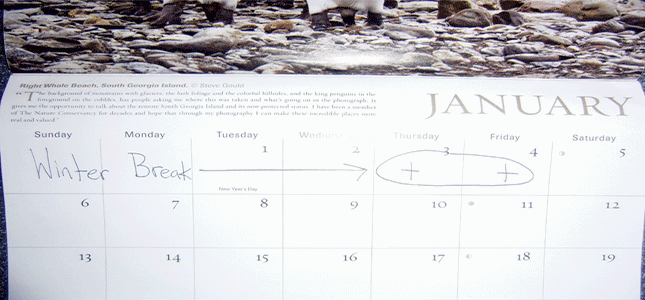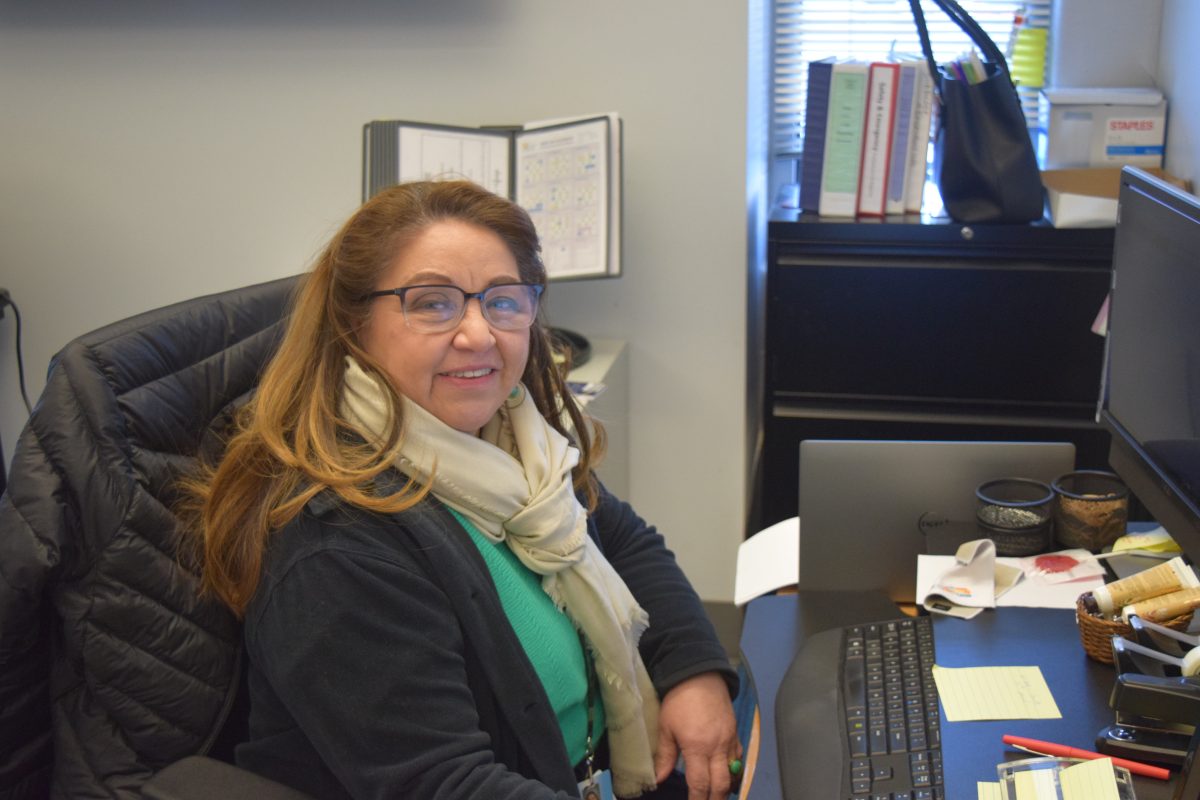By Amy Andrukonis
Sentry Staff Reporter
While the academic calendar may seem to follow a pretty straightforward formula year after year, a lot goes into the calendar-making process behind the scenes.
Calendar committee member and Washington-Lee social studies teacher Natalie Rook explains that creating a calendar for the 2013-2014 school year that pleases everyone has been difficult.
“You have a lot of vested interest in the school calendar. You’ve got teachers, you’ve got administrators, you’ve got parents, you’ve got students, and then you also have the school board, and even businesses. So all of those different groups give their input, and I think that’s probably the biggest challenge, trying to address everyone’s concerns,” said Rook.
While a lot of debate may go into certain aspects of the calendar, many things are set in stone. There are legal requirements that come in to play when drafting the academic schedule.
“We always have to begin after Labor Day. That’s a state rule. Some refer to it as ‘The King’s Dominion Rule.’ The state got money from King’s Dominion for education purposes to agree that we start school after Labor Day, because of course with the amusement park, the idea was that Labor Day was the last big hurrah for the season. I do believe there was money exchanged,” Rook said.
Principal Dr. Raymond Pasi also commented on this law.
“There’s a Virginia law which requires us to start after Labor Day, which I think is too bad. I would like to see the schedule changed so we could start earlier, but that’s dictated by state law as far as I understand…therefore, we’ll probably continue to start after Labor Day,” said Pasi.
The state also has specific requirements in terms of how many hours of school there are per year.
“The state mandates that we have 990 hours of school, and that breaks down to basically 184 school days for high school. You can fool around with that a little bit. You can make the day longer, and then maybe not have so many days in school. There’s one district in Virginia that their school district is 179 days, but they have a much longer day in school,” Rook explained.
The main reason for the current hours of the school day schedule, including beginning and ending classes at uneven times like 8:19 and 3:01, is a movement made by parents a few years ago.
“High school parents in the county were concerned about the fact that high school was starting earlier in the morning, and they had studies that showed that high school students just don’t really function as early as we were starting. And so they petitioned the school board, and the school board looked into it. And that’s why we have the hours that we do for high school, middle school and elementary school. Because as they made the day later for high school students, because of busses, they had to adjust middle school schedules,” said Rook.
While the state has certain requirements regarding the calendar, much is up for debate. There are even possibilities as radical as year-round schooling, a system which is becoming increasingly popular in the United States. Such a system could implement longer breaks for national holidays and a shortened summer break.
“I think Arlington’s open to almost anything. I think year round school has a lot of plusses, but the problem you have is with the colleges and college schedules. I don’t know how difficult that would be for seniors going off to college. But we already have Barrett Elementary, which is year round. For elementary and middle schools it might work really well. I’m not sure about the high schools,” explained Rook.
Pasi agreed year round schooling was a possibility that would probably be considered, but he found the current method of one extended summer break preferable.
“I’m sure [year round schooling] will be looked at. I like the way we do it now. I like a summer break that’s substantial and a spring break and a winter break. If there were a strong reason for changing that, for going year round, I’d be open to that. There’s something about a substantial break at the end that I like, but that might be simply because that’s what I’m used to.”
A proposal for the 2013-2014 school year calendar will be posted on the Arlington Public Schools website within the next couple of weeks, and the public will be able to ask questions and make comments about the draft. Rook wants students to know their input is valuable in the calendar making process, as well as the input of their parents.
“It’s important students know they have input on this. So when the calendar goes up for public comments, students should comment too.”
Until next year’s calendar is given the final check of approval from the Superintendant in March, Rook and the rest of the calendar committee are working together to create the ideal academic schedule for 2013-2014.

